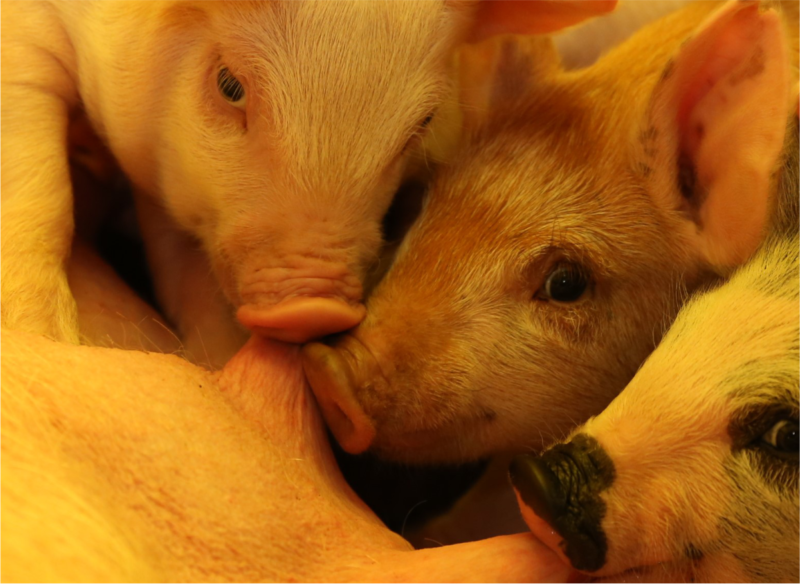
Animal Welfare
At Seara, animal welfare is more than an ethical issue, it is a non-negotiable commitment. That's why all our actions, as well as those of our partners and collaborators, are in line with good animal production practices. All actions that are part of the routine breeding process are based on the five domains of animal welfare identified by Mellor and Reid in 1994.
Animal Welfare Management
Seara's Animal Welfare Commitments
Actions in Animal Welfare
New initiatives in Animal Welfare
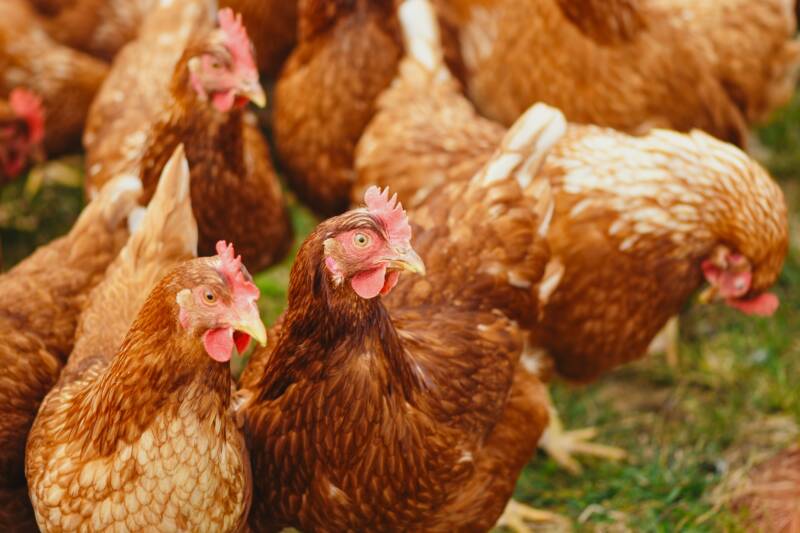
The five domains
Our processes are carried out in line with the five domains of animal welfare: nutrition (feeding and hydrating the animals), environment (keeping the animals warm and in spacious areas), health, behavioural interactions (fostering the expression of natural behaviours) and mental state/experiences (preventing hunger, thirst, fear or frustration). By working in these areas, we improve the quality of life for the animals in our facilities.
Animal Welfare Management
The management and governance process for animal welfare is structured into weekly forums, monthly working groups and quarterly committees, which bring together the technical teams and directorates responsible for the issue to discuss the main opportunities for each species and category.
Seara has teams of specialists, masters and doctors in animal nutrition, production and health, responsible for ensuring the best technologies and practices to maintain animal welfare, defined by the management of the issue. The company also has a technical team on site to manage and monitor animal husbandry, working with integrated producers to provide the best conditions for the animals in terms of environment, nutrition, health and behaviour.
Our abattoirs have Animal Welfare Officers (AWOs): trained staff who monitor animals from the time they arrive at the abattoir until they are slaughtered.
We are committed to constantly evolving our processes and perfecting our breeding. To accelerate and strengthen this purpose, we have projects in partnership with renowned research institutions and universities, keeping us in line with the best.
SEARA'S ANIMAL WELFARE COMMITMENTS
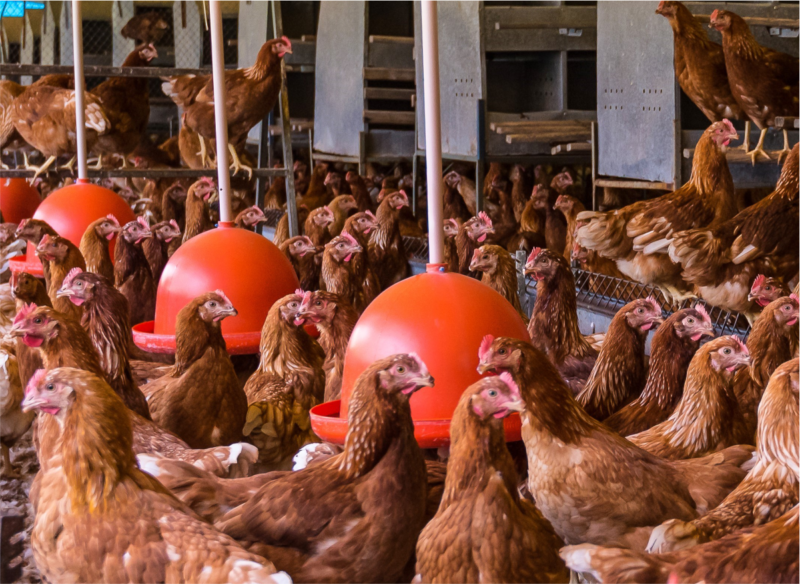
Cage-Free Chicken Eggs
Seara has made a commitment through JBS to source only commercial eggs from cage-free hens for the ingredients in its products by 2025.
In 2020, the company realized its goal of sourcing all its eggs from cage-free sources. In 2021, however, the landscape changed with the acquisition of Bunge's margarine and mayonnaise assets. These new products in Seara's portfolio will have until 2025 to make the transition to cage-free sourcing. In 2022, the volume of cage-free eggs purchased accounted for 48% of the total purchased.
This commitment guarantees poultry complete freedom of movement, the ability to spread their wings, stretch, perch, bathe in sand and scratch, as well as allowing for greater social interaction between the animals.
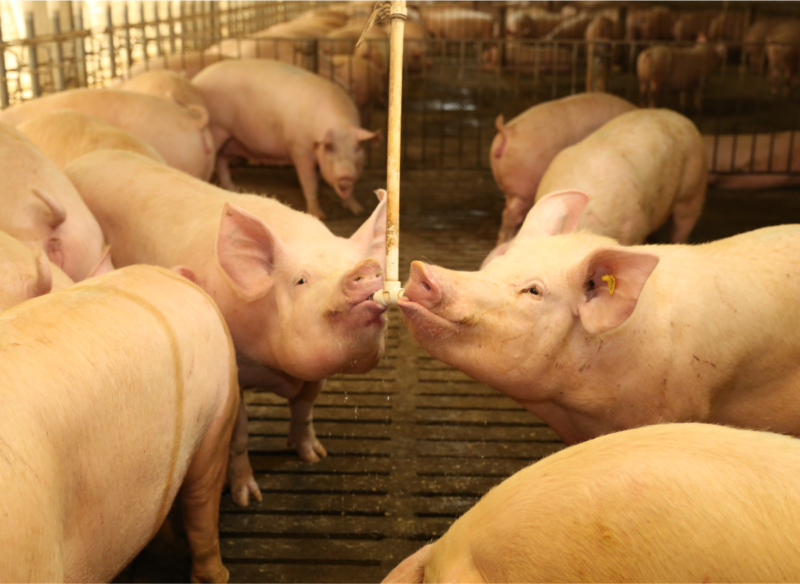
Collective gestation
Seara is committed to moving from individual gestation to group gestation in 100% of its pig production by 2025.
Pigs are social animals (they live in groups) and have a hierarchy, exploratory behavior and transit and resting areas. Seara's commitment to moving from individual to group housing provides the conditions for the animals to express these behaviors.
New projects, expansions, and adaptations are already being built to this standard.
Collect and release handling is used in all new projects.
ACTIONS IN ANIMAL WELFARE
Seara is a member of the Livestock Technical Committee, the GlobalGAP quality certifier, which discusses and defines animal welfare trends, requirements and parameters worldwide.
All care and handling during production takes into account good animal welfare practices appropriate to the species, age and stage of rearing.
The five domains of animal welfare underpin the practices and training of all those involved in rearing, transporting and slaughtering the animals.
Regarding live-animal logistics, we priorities the best routes, taking into account distance, journey time and speed on route.
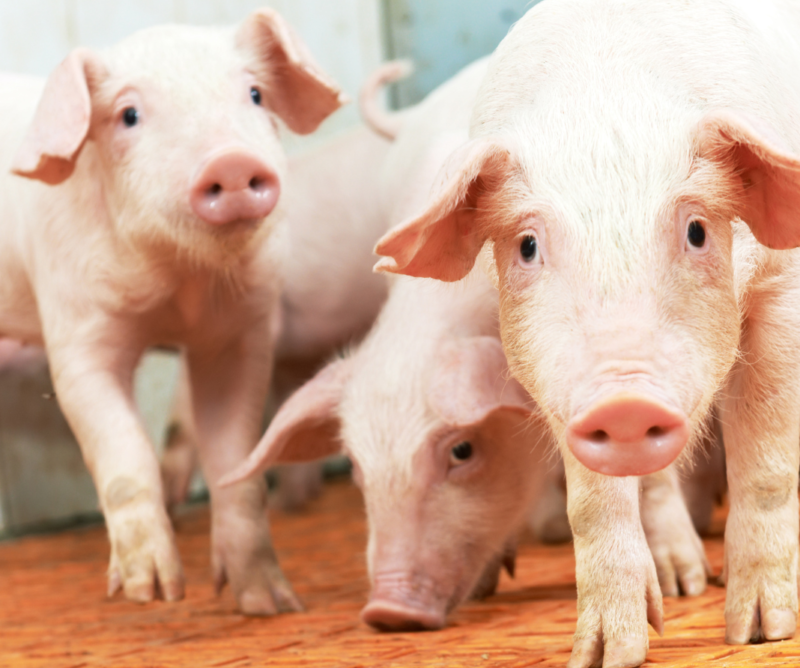
Pigs
100% of male pigs are immunocastrated;
100% of the nurseries are air-conditioned;
100% of the farms do not clip or grind the piglets' teeth;
100% of the pigs are fed without the use of growth promoters;
100% of the facilities allow for continuous renewal and maintenance of indoor air quality;
100% of the housing meets breeding-density guidelines;
100% of the maternity pens have piglet anti-crushing bars.
For new piglet production unit projects:
100% of the maternity pens are air-conditioned;
100% of the gestations are climate-controlled with collect and release handling;
100% of the farms have a minibox layout, which reduces feeding fights and increases collective interaction;
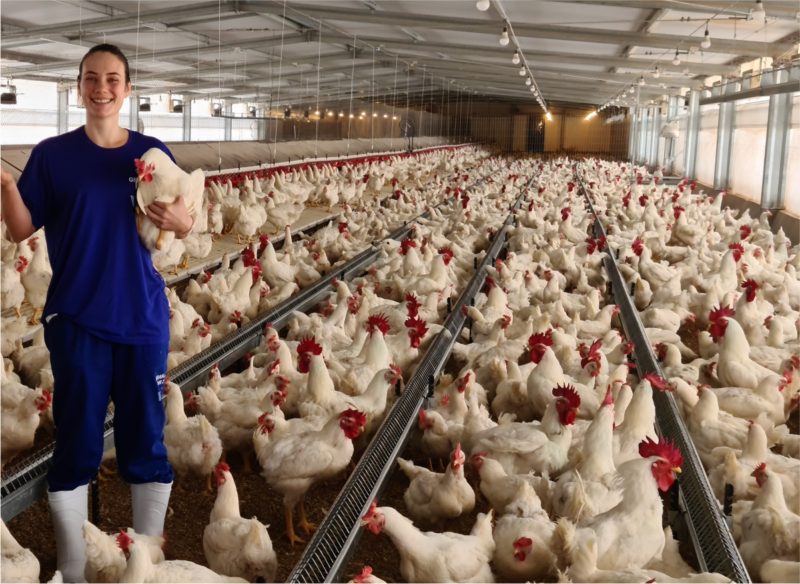
Poultry
100% of the poultry houses have at least 6 hours of darkness per day;
100% of breeding hens that lay fertile eggs are cage-free;
100% of fertile egg-laying hens do not have their beaks trimmed;
100% of the facilities allow for continuous renewal and maintenance of indoor air quality;
100% of day-old chicks are transported in a heated environment in monitored trucks;
NEW INITIATIVES IN ANIMAL WELFARE
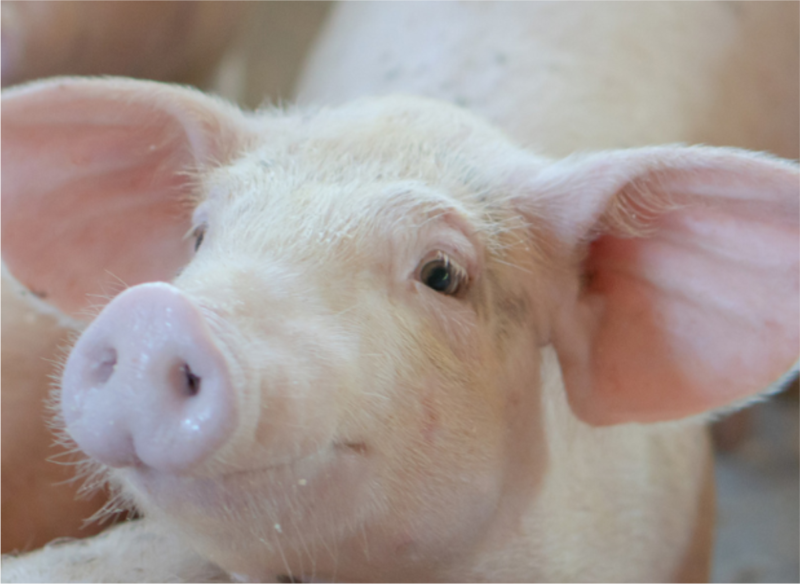
Pigs
100% of the pig farms have environmental enrichment goals to be meet by 2025.
100% of ear notching to be abolished by 2027. The process of marking pigs' ears and defining new housing systems to progressively eliminate pig-ear notching is underway.
Increasing the weaning age of piglets to a minimum of 24 days.
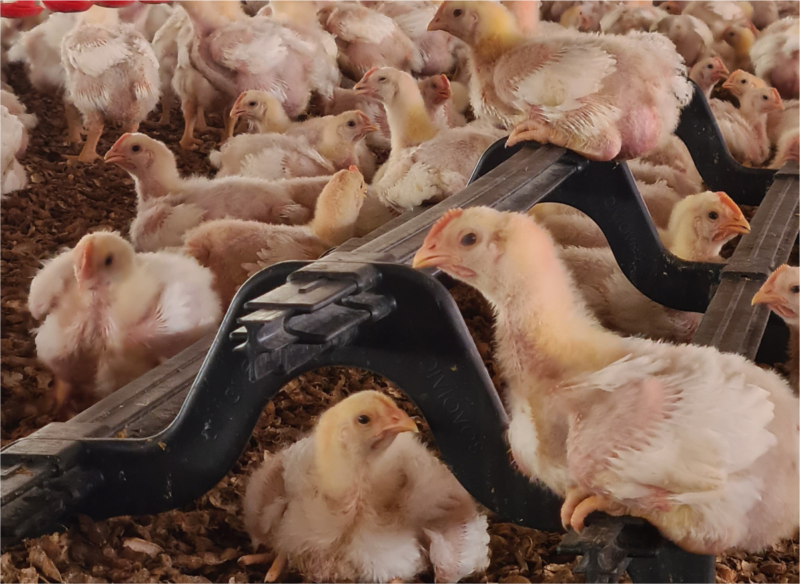
Poultry
Increasing environmental enrichment in the broiler units;
Increasing environmental enrichment in the aviaries for final-phase turkey rearing.